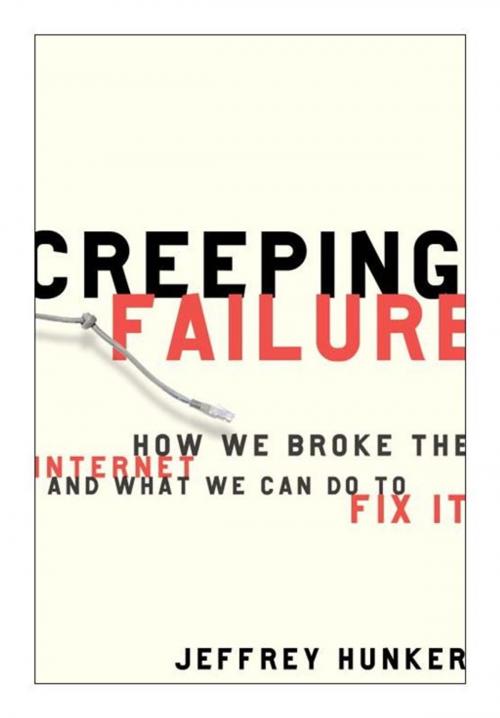Creeping Failure
How We Broke the Internet and What We Can Do to Fix It
Nonfiction, Computers, Internet, Security, Social & Cultural Studies, Social Science| Author: | Jeffrey Hunker | ISBN: | 9781551993515 |
| Publisher: | McClelland & Stewart | Publication: | August 24, 2010 |
| Imprint: | McClelland & Stewart | Language: | English |
| Author: | Jeffrey Hunker |
| ISBN: | 9781551993515 |
| Publisher: | McClelland & Stewart |
| Publication: | August 24, 2010 |
| Imprint: | McClelland & Stewart |
| Language: | English |
The Internet is often called a superhighway, but it may be more analogous to a city: an immense tangle of streets, highways, and interchanges, lined with homes and businesses, playgrounds and theatres. We may not physically live in this city, but most of us spend a lot of time there, and even pay rents and fees to hold property in it.
But the Internet is not a city of the 21st century. Jeffrey Hunker, an internationally known expert in cyber-security and counter-terrorism policy, argues that the Internet of today is, in many ways, equivalent to the burgeoning cities of the early Industrial Revolution: teeming with energy but also with new and previously unimagined dangers, and lacking the technical and political infrastructures to deal with these problems. In a world where change of our own making has led to unexpected consequences, why have we failed, at our own peril, to address these consequences?
Drawing on his experience as a top expert in information security, Hunker sets out to answer this critical question in Creeping Failure*.* Hunker takes a close look at the "creeping failures" that have kept us in a state of cyber insecurity: how and why they happened, and most crucially, how they can be fixed. And he arrives at some stunning conclusions about the dramatic measures that we will need to accomplish this.
This groundbreaking book is an essential first step toward understanding the World Wide Web in a larger context as we try to build a safer Internet "city." But it also raises issues that are relevant far outside the online realm: for example, how can we work together to create not just new policy, but new kinds of policy? Creeping Failure calls for nothing less than a basic rethinking of the Internet — and of how we solve problems together.
The Internet is often called a superhighway, but it may be more analogous to a city: an immense tangle of streets, highways, and interchanges, lined with homes and businesses, playgrounds and theatres. We may not physically live in this city, but most of us spend a lot of time there, and even pay rents and fees to hold property in it.
But the Internet is not a city of the 21st century. Jeffrey Hunker, an internationally known expert in cyber-security and counter-terrorism policy, argues that the Internet of today is, in many ways, equivalent to the burgeoning cities of the early Industrial Revolution: teeming with energy but also with new and previously unimagined dangers, and lacking the technical and political infrastructures to deal with these problems. In a world where change of our own making has led to unexpected consequences, why have we failed, at our own peril, to address these consequences?
Drawing on his experience as a top expert in information security, Hunker sets out to answer this critical question in Creeping Failure*.* Hunker takes a close look at the "creeping failures" that have kept us in a state of cyber insecurity: how and why they happened, and most crucially, how they can be fixed. And he arrives at some stunning conclusions about the dramatic measures that we will need to accomplish this.
This groundbreaking book is an essential first step toward understanding the World Wide Web in a larger context as we try to build a safer Internet "city." But it also raises issues that are relevant far outside the online realm: for example, how can we work together to create not just new policy, but new kinds of policy? Creeping Failure calls for nothing less than a basic rethinking of the Internet — and of how we solve problems together.















